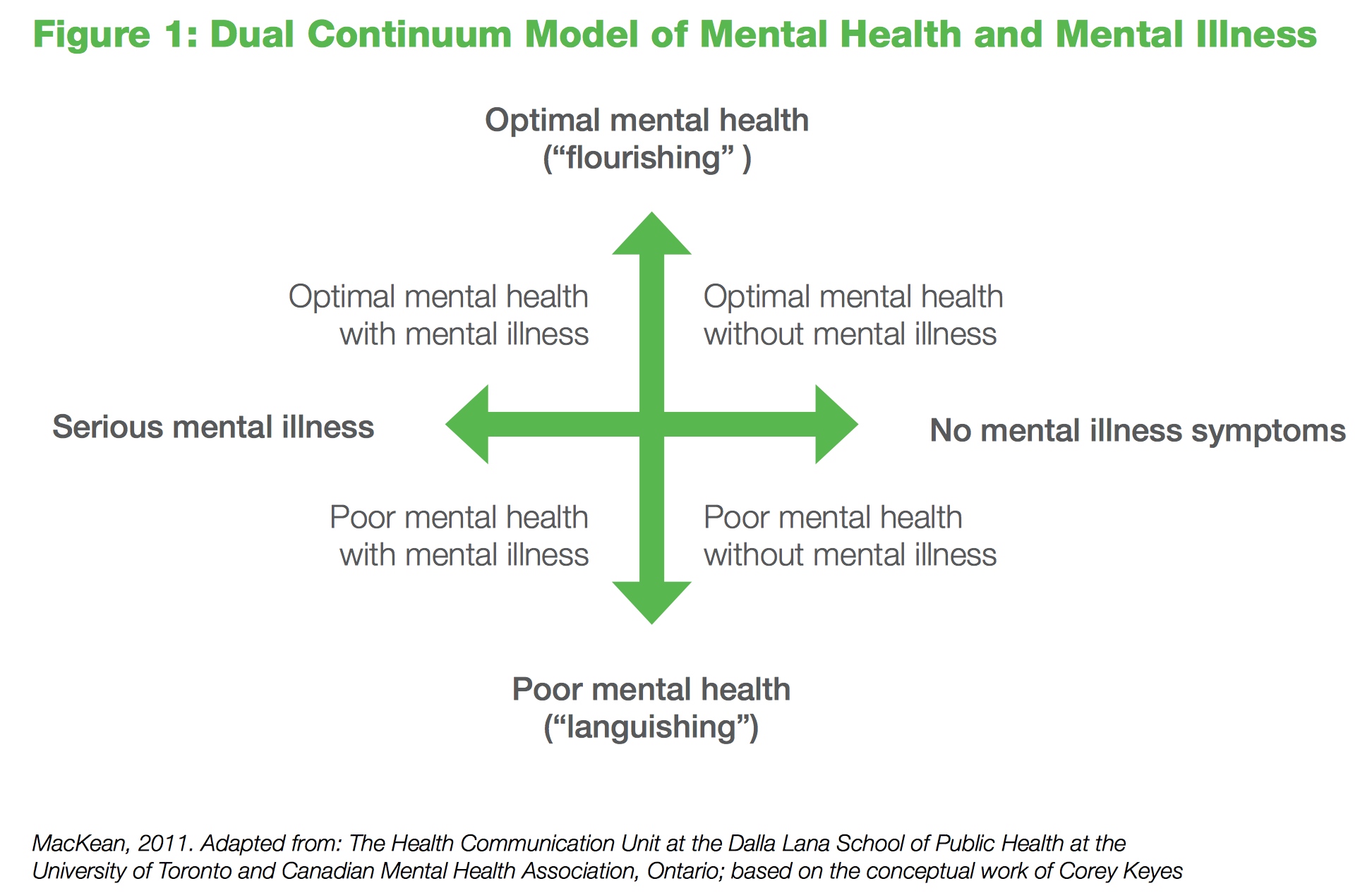Mental health information refers to knowledge, resources, and data related to mental health and psychological well-being. The information in this section aims to increase awareness, understanding, and support for individuals facing mental health challenges.
What is mental health?
A state of wellbeing in which an individual is:
- rooted in self-awareness and acceptance
- engaged with their day to day life, relationships, community and environment
- living with purpose and balance
- resilient to everyday hardships
Mental health and wellbeing involves various dimensions of our lives:
Social
- Relating to and connecting with others including friends, family, and community members
Physical
- Taking care of your body to allow you to perform and experience daily activities without excessive fatique and physcial stress. This involves adopting healthy habits such as adequate sleep, nutrition, physical activity and regular check ups and avoiding destructive habits.
Emotional
- Having a strong sense of self awareness and understanding
- Able to cope with challenges
- Able to acknowledge and share feelings in a healthy and productive way
Occupational
- Relates to your work, career and/or calling
- Fulfillment and/or satisfaction from work
- Work-life balance
- Healthy work environment
Intellectual
- Desire to learn new concepts and skills
- Seeking knowledge, challenge and new experiences
- Ability to open one's mind to new ideas and possibilities
Environmental
- Living in a clean and safe environment
- Recognizing own responsibility for surrounding environment
- Ability to make positive impact on environment
Spiritual
- "Living a meaningful and purposeful life"
- Establishing peace and harmony
- Alignment of one's values and action
What is mental illness?
Changes in one's thinking, mood, and/or behaviour resulting in distress and decreased ability to engage with and manage the demands of everyday life. It can take on many forms (e.g. mood disorders, anxiety disorders, schizophrenia, addiction) and symptoms can be experienced as a single episode through to a persistent condition.
For further information, read Myths about Mental Illness from the Canadian Mental Health Association.
The relationship between mental health and mental illness
Mental health is more than just an absence of mental illness; the two are related and yet distinct, each one lying on its own separate continuum; An individual can experience varying degrees of mental health from "languishing" to "flourising", and varying intensities and symptoms of mental illness.
In this way, someone can be experiencing no symptoms of mental illness while also languishing in certain area(s) of their life; they may also experience symptoms of mental illness at the same time they are experiencing "good" mental health or flourishing.

Stigma
Stigma is the combination of negative attitudes and behaviours directed toward individuals that struggle with mental illness. While approximately 1 in 5 Canadians have been affected directly in some way by mental illness, almost all Canadians have been indirectly affected through those closest to them. Despite this, stigma is still a very present obstacle to supporting those that experience mental health issues.
Stigma carries significant consequences to those subjected to it including: a sense of detachment and lack of belonging leading to social isolation, internalizing of symptoms and secrecy surrounding their suffering, disruption and barriers to treatment and support, as well as feelings of shame and the development of depression. Stigma can affect someone while they are struggling, during treatment and recovery, and even after their experience with mental illness or a mental health concern.Help reduce stigma by speaking up and challenging it when you encounter it in your daily life or in the media; by educating yourself and thinking critically; by paying attention to your own perceptions and judgements as well as being kind and supporting those close to you who suffer from mental illness.
For further information: Stigma 101
References and further reading
Canadian Mental Health Association
Centre for Addiction and Mental Health (CAMH)
Government of Alberta (2014). Alberta's Strategic Approach to Wellness.
Canadian Association of College & University Student Services and Canadian Mental Health Association. (2013). Post-Secondary Student Mental Health: Guide to a Systemic Approach. Vancouver, BC: Author